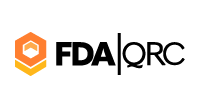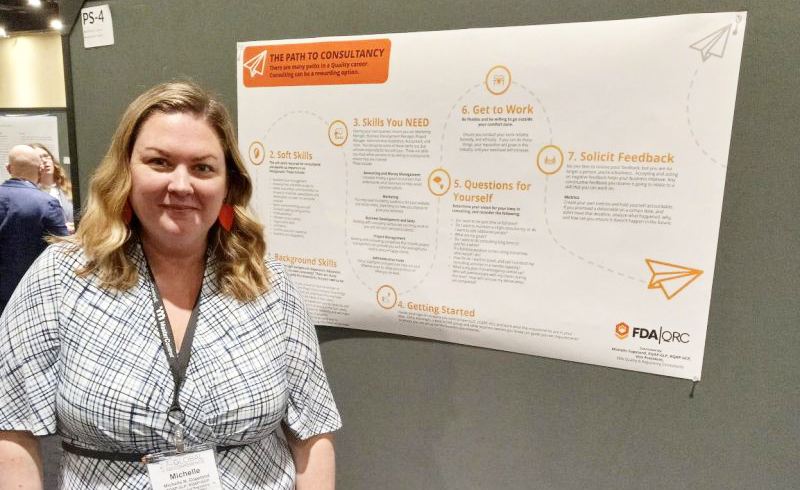With the biopharmaceutical industry’s ever-changing job fields, some people may want to take control over their employment by becoming a consultant. However, many do not know where to begin or what it takes to become a consultant. This poster brings FDAQRC’s expertise on consultancy and offers how to make the most of a quality and regulatory consulting position.
This poster was first presented at the SQA 2023 Conference by FDAQRC Vice President, Michelle Copeland. She has more than 15 years of experience in the research industry. Her background is in Good Laboratory Practice (GLP), Good Manufacturing Practices (GMP), Good Clinical Practice (GCP) and International Organization for Standardization (ISO), working on a wide range of clinical and pre-clinical studies. She has conducted a wide range of audits with complex protocols including those with vulnerable populations.
Michelle currently serves as the Vice President of FDAQRC, providing leadership to the Remediation, Recruiting, Project Management, Resourcing, and Audit teams. In her tenure at FDAQRC, she has held various roles, providing her expertise to improve delivery, profitability, quality, and client satisfaction.

How to Secure Project Assignments with FDAQRC: A Guide for Consultants

Tips For Preparing & Hosting a Successful Audit

Regulating AI in Clinical Trials: What ICH E6(R3) Does (and Doesn’t) Say

Explores the Differences Between Auditors and Inspectors in the Clinical Research Industry
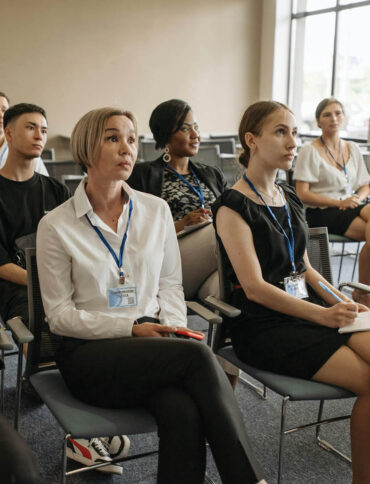
Competency Based Programs Contribute to Early Clinical Research Professional’s Training
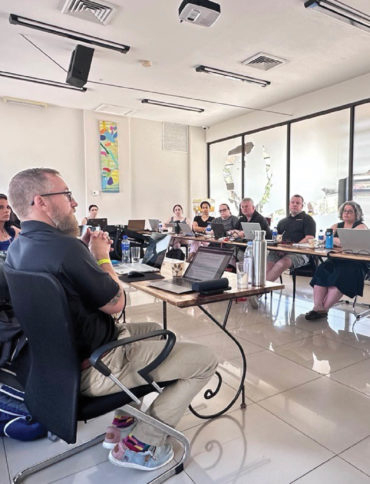
15 Years of Excellence: FDAQRC's Journey and Future Vision
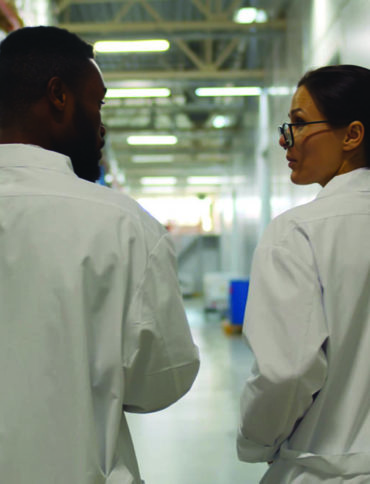
Tips for a Positive Outcome While Performing a Challenging Audit

